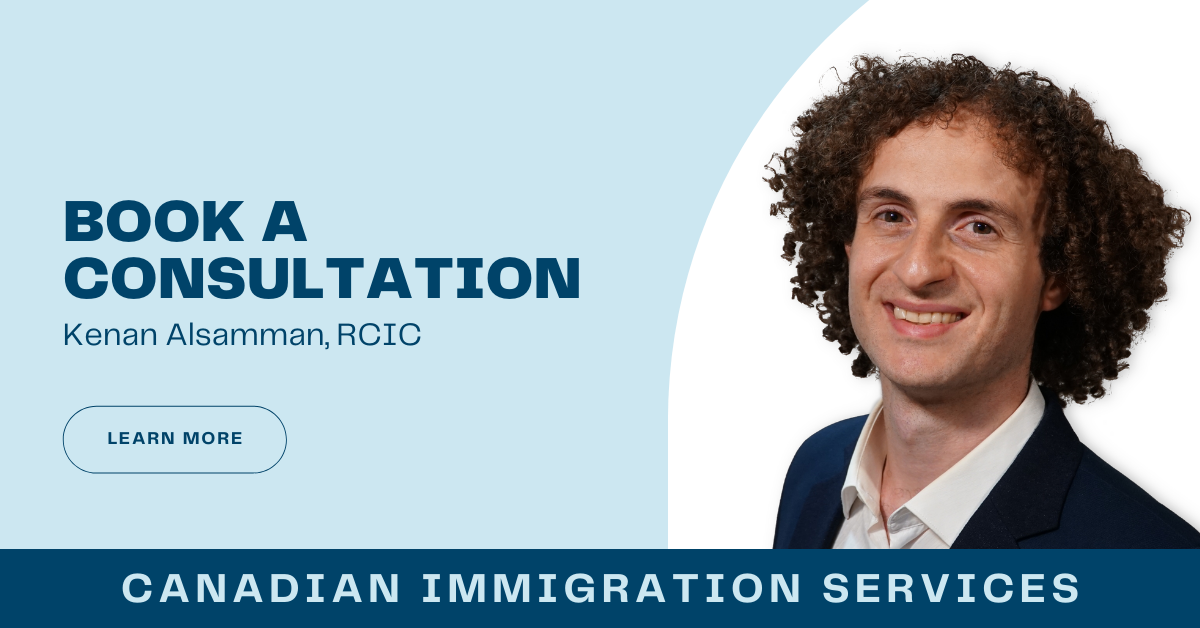

College of Immigration and Citizenship Consultants (CICC)
On November 23, 2021, the Immigration Consultants of Canada Regulatory Council (ICCRC) became the College of Immigration and Citizenship Consultants (CICC). The active members of ICCRC have automatically become members of CICC with this transition.
What does this mean for you?
In the past, we have written about how to avoid fake immigration consultants. In that post, we mentioned that only immigration consultants who are licensed by ICCRC can advise and represent clients for Canadian immigration matters. However, since November 23, 2021, only immigration consultants licensed by CICC can legally advise and represent clients for Canadian immigration matters.
Even the website for ICCRC, https://iccrc-crcic.ca, has become https://college-ic.ca to reflect this new change. If you want to know more about this change, keep reading.
Table of Contents
Who is Authorized to be a Canadian Immigration Consultant?
According to section 91(1) and (2) of the Immigration and Refugee Protection Act, nobody is authorized to represent or advise a person regarding their Canadian expression of interest, proceeding or immigration application unless:
What is the College of Immigration and Citizenship Consultants (CICC)?
Since November 23, 2021, the Minister of Citizenship and Immigration designated the College of Immigration and Citizenship Consultants (CICC) as the body responsible for regulating immigration consultants according to the Government of Canada website. Members in good standing with CICC can call themselves a Regulated Canadian Immigration Consultant (RCIC).
Anybody else who does not meet any of the three criteria above and is charging a fee for providing Canadian immigration advice and representation is most likely operating illegally. It does not matter whether they are operating in Canada or in a foreign country. There are only a few rare exceptions such as a student-at-law or an entity with an agreement with Her Majesty (Queen Elizabeth II) as stated in IRPA 91(3)(4).
What does CICC do?
CICC regulates Canadian immigration consultants. This is done to protect the public from fraudulent immigration consultants. Likewise, CICC can discipline any immigration consultants who are licensed by CICC who have been found to operate illegally or unethically. If you work with an immigration consultant who is not licensed by CICC, you run the risk of having your immigration application refused and potentially being defrauded with no recourse.
ICCRC was also responsible for regulating Canadian immigration consultants, however, with the College, they now have increased powers and abilities to enter a consultant's premises to gather information for an investigation, compel witnesses to testify before its Discipline Committee and request court injunctions to address unlicensed immigration consultants. With CICC's new powers and tools, they have a better chance of identifying unlicensed consultants and forbidding their unauthorized practice.
How to Find a Regulated Canadian Immigration Consultant
Every licensed member of ICCRC can be found in the Public Register found on the ICCRC website here: CICC Public Register.
You can search by name, membership number or company to try and find a particular RCIC. For example, when you search my last name, Alsamman, you will find my name listed:


As you can see, my Consultant Identification number is R707864 and I am an active member of ICCRC. If you click the Contact link, you will see this:


There are thousands of other RCICs who are authorized to provide immigration advice and representation for a fee. Also, a friend or family member may represent you in your immigration application, as long as they are uncompensated (not being paid). They can fill out the Use of Representative Form (IMM 5476) to notify Immigration, Refugees and Citizenship Canada (IRCC) that they are an authorized representative of the applicant. If you suspect that someone is unauthorized, ask them for their CICC membership number and search for it in the Public Register. If you cannot find them, or the names do not match, they are likely unauthorized.
Thank you all for reading this post. I hope you learned how to identify potential fraudulent immigration consultants so that you can protect yourself and others from being scammed or mislead by unauthorized representatives.
If you are interested in immigrating to Canada, feel free to click the picture below to start booking a consultation with a Regulated Canadian Immigration Consultant!

